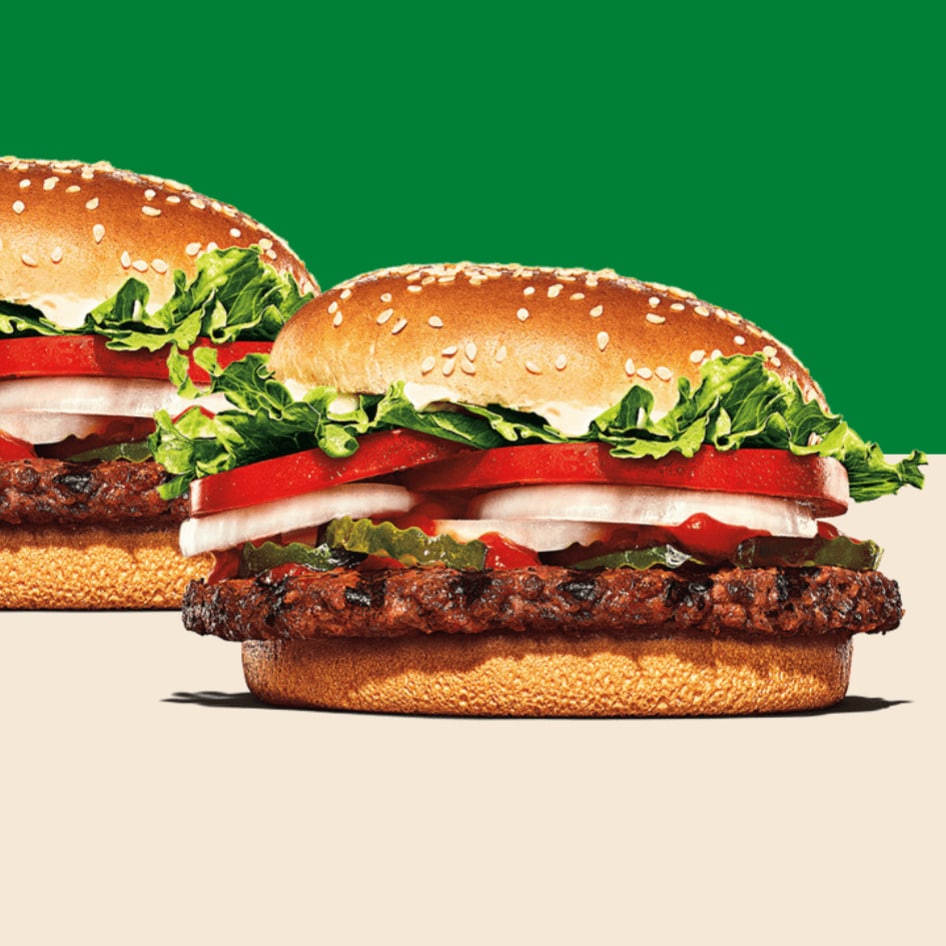Backed by actress Natalie Portman, French startup La Vie first gained popularity for its vegan bacon. After only 18 months in operation, La Vie now sells one vegan meat product every 12 seconds.
For its next product, La Vie recently unveiled a plant-based ham designed to transform the classic French jambon beurre sandwich. This move is significant given the cultural importance of the jambon beurre in France, where an official index tracks the popularity of the sandwich, also referred to as “Le Parisien.”
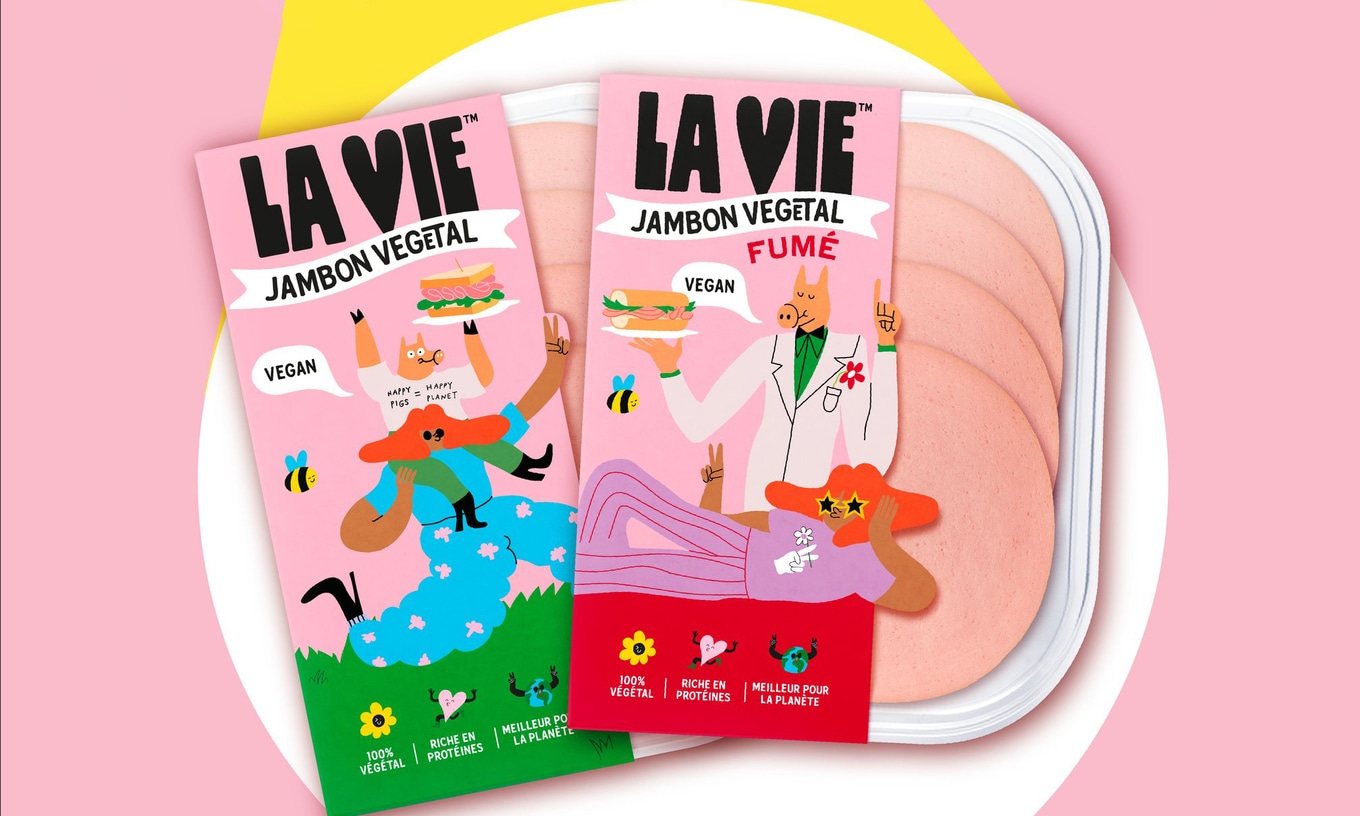 La Vie
La Vie
With more than 1.2 billion jambon beurre sandwiches sold annually in France, La Vie’s new product offers a more sustainable alternative to the simple sandwich, which is made only with a baguette, ham, and butter.
La Vie’s vegan ham
La Vie spent four years developing its plant-based ham, which is primarily made up of 90 percent pea protein and comprises only seven ingredients. Unlike traditional hams, this version is devoid of nitrites, substances the World Health Organization has associated with cancer risks.
Nutritionally, a single serving of La Vie’s ham offers 19.5 grams of protein and a mere 0.7 grams of saturated fat, compared to 21 grams of protein and 1 gram of saturated fat found in typical French ham.
“And best of all, it doesn’t harm a hair on a pig’s ear,” La Vie announced on social media. “We are the c-HAM-pions, my friend.”
La Vie’s new ham—available in both smoked and plain varieties—has been on the shelves of several leading French supermarket chains for a short time and has already received a favorable consumer response, with many lauding its close resemblance to its animal-derived counterpart.
It is currently available in French retailers Intermarche, Leclerc, Super U, Auchamps, and Cora, and the company has an eye on further expansion.
France pushes back on plant-based meat
La Vie is shaking up the status quo in France, a region known for its meat- and cheese-heavy cuisine.
Last year, La Vie’s vegan bacon was added to the menu at 550 Burger King locations across France, thanks to a customer-driven campaign. A tweet from a patron named Julien lamented the absence of vegan bacon in Burger King’s plant-based Veggie Steakhouse burger. Responding to this call, La Vie engaged in a week-long campaign, including an ad in the Parisian newspaper Le Parisien.
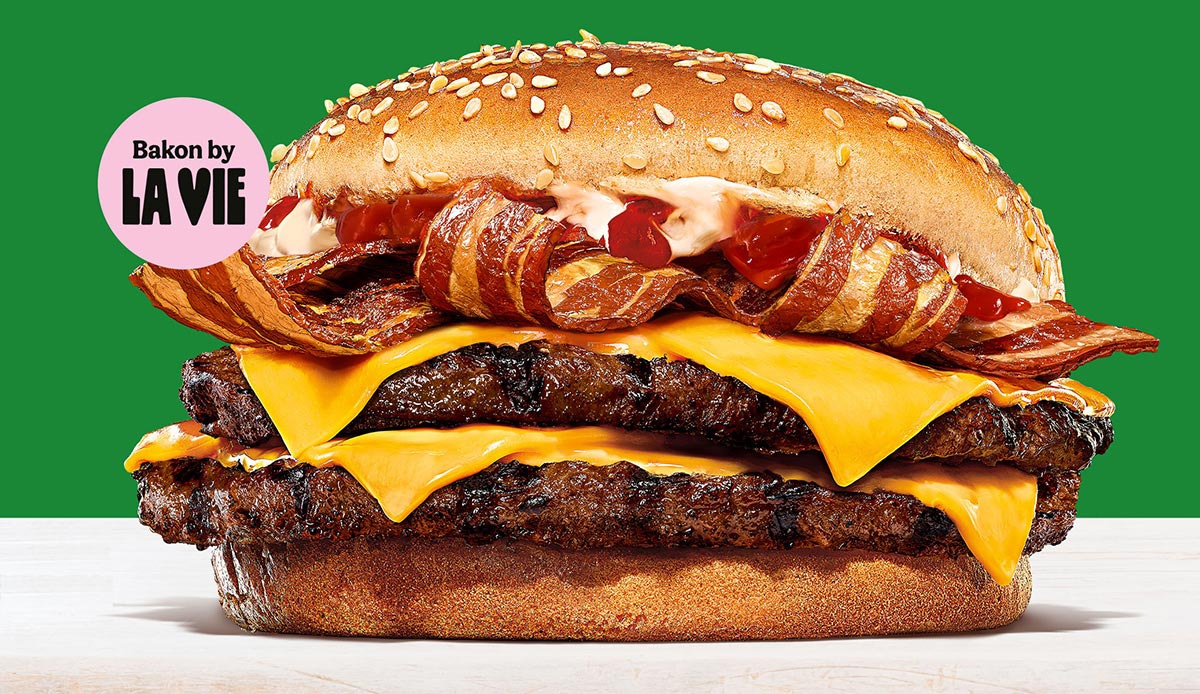 Burger King
Burger King
The campaign was a success and early this year, landed La Vie’s vegan bacon on Burger King menus in the United Kingdom as part of three plant-based bacon cheeseburgers.
However, La Vie’s victories have not been without major challenges. That’s because it is operating in a climate where the French government is seeking to prohibit the use of meat-related terms for plant-based products. This proposed regulation comes with the support of local farmers and the meat industry in France.
Last fall, La Vie found itself in a skirmish with the French pork lobby, which accused the startup of “unfair competition” due to the similarities between its vegan bacon and traditional pork lardons. In response, La Vie launched a spirited social media campaign.
“The pork lobby has given us notice for ‘unfair competition’ as our vegetable lardons accurately mimic ‘authentic’ pork lardons,” the company wrote on social media. “Yes, they do. We consider it the highest form of compliment, receipt acknowledged.”
This fight over labeling has recently resurfaced. Last month, France’s agriculture ministry issued a decree to propose a ban on 21 meat-related terms, such as “steak,” “ham,” and “fillet,” being used to label plant-based products.
A second list of 120 terms—such as “bacon,” “pastrami,” and “sausage”—will be allowed but with a stipulation that they be made from a combination of plants and animals, with the plant protein levels limited to a certain threshold.
Notably, the word “burger” was not on the list of terms. This is after a 2020 vote by Members of Parliament of the European Union (EU) to reject Amendment 165, a proposed ban on terms such as “burgers” and “sausages” on products that do not contain animal meat.
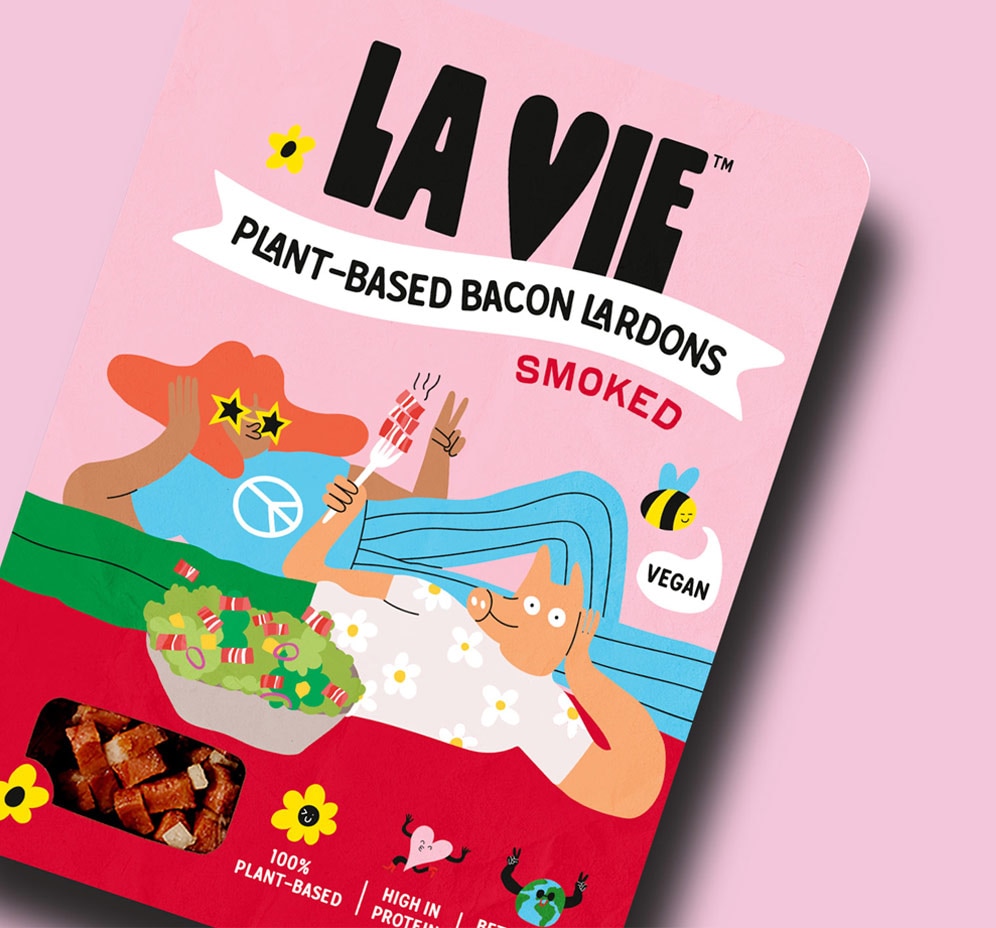 La Vie
La Vie
Consumer advocates argue that these changes are unnecessary, stating that shoppers are fully aware of what they are buying when they opt for plant-based alternatives. Stateside, pioneering brand The Tofurky Company has successfully challenged similar legislation on the ground that it interfered with the company’s corporate free speech rights, protected by the First Amendment.
If the proposed regulations pass, La Vie and other plant-based companies will have three months to comply.
Building the world’s biggest pork company
While the battle over plant-based meat continues in France, La Vie is moving full steam ahead to expand its plant-based meats.
In January, La Vie secured €25 million ($26.9 million) in a Series A funding round to fund its growth and international expansion, including into the United States. The company recently initiated a €1 million ($1.1 million) crowdfunding effort on CrowdCube that will run through September 28. La Vie aims to be profitable by 2026 and the crowdfunding is a part of a larger, yet-to-be-disclosed funding round.
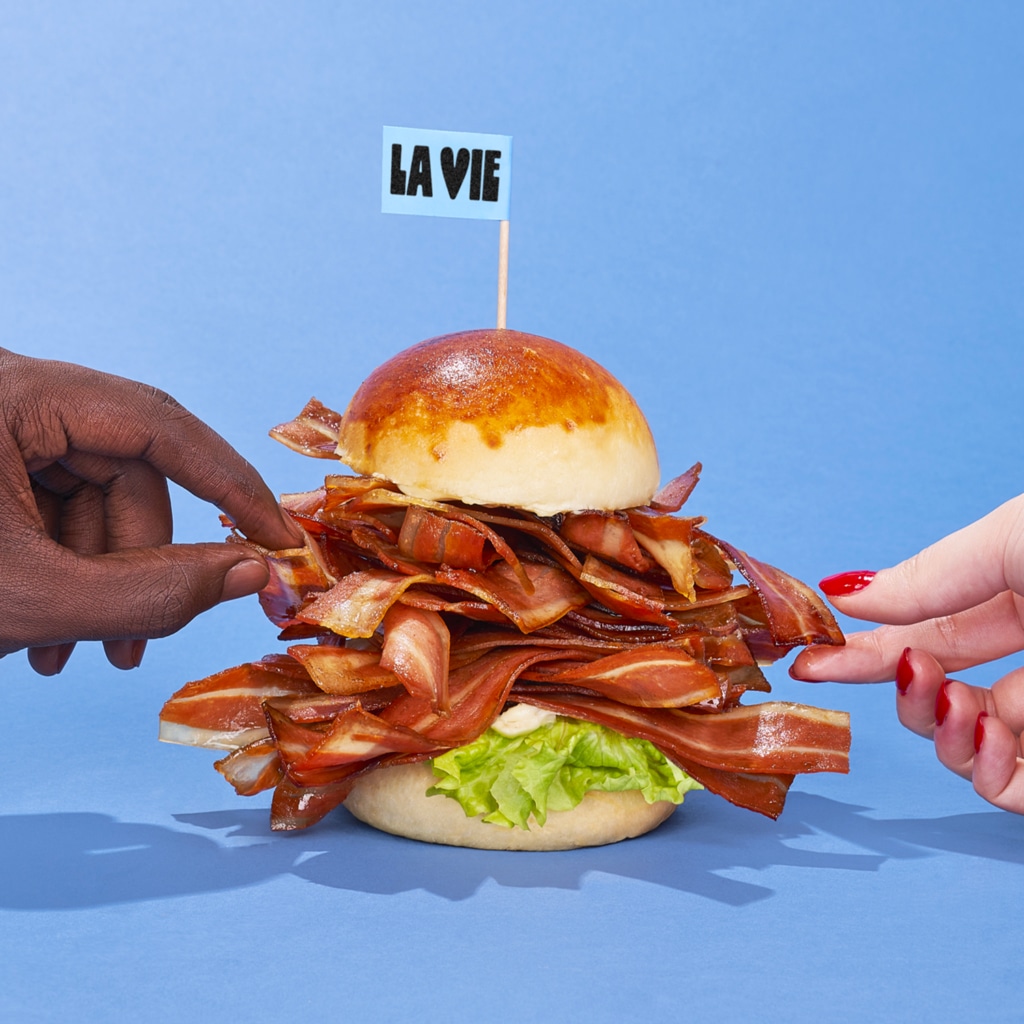 La Vie
La Vie
Currently, La Vie’s vegan meat products are sold at 4,600 retailers and offered on the menu at 3,000 restaurants across Europe, including in the UK where its vegan bacon is offered at major retailer Sainsbury’s as part of a BLT.
La Vie is also gearing up to launch a virtual restaurant, with items such as vegan bacon burgers and sandwiches available for delivery first across France before expanding to other regions. The company’s ultimate goal?
“To become by 2050 the largest pork meat brand on planet Earth, without hurting a fly,” it states.
For the latest vegan news, read:
JUMP TO ... Latest News | Recipes | Guides | Health | Subscribe





